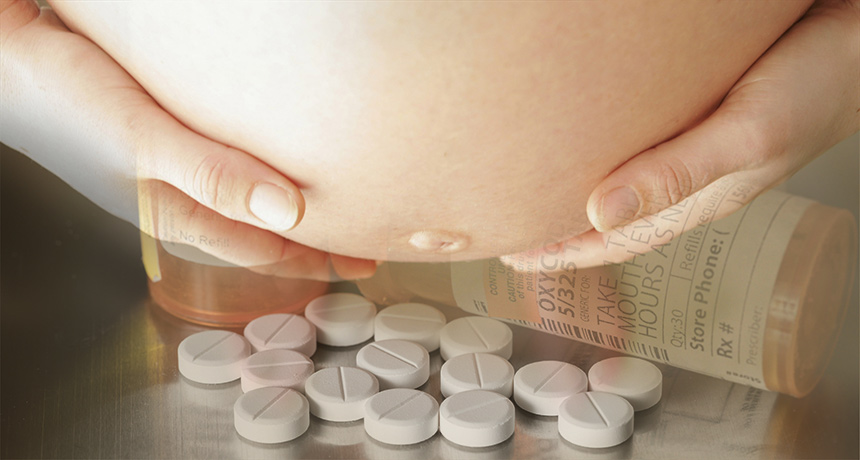Pregnant women’s use of opioids is on the rise
Early screening could prevent pregnancy complications and health problems for babies

PREGNANCY AND PILLS Pregnant women haven’t escaped the opioid crisis, the CDC reports. In 28 U.S. states, the rate of women using opioids such as oxycodone, shown in the background of this composite image, close to childbirth has risen sharply since 1999.
Menna/Shutterstock; Steve Heap/Shutterstock







